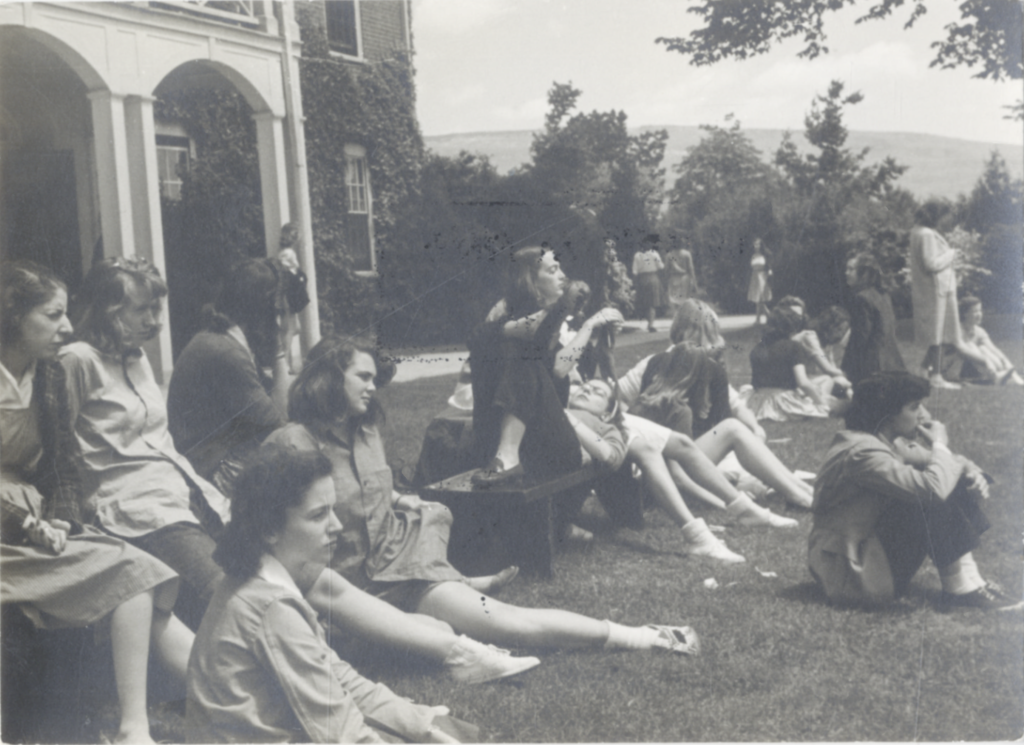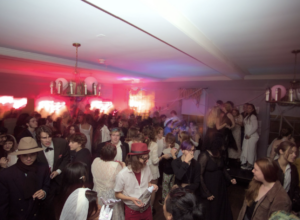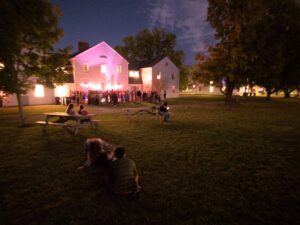
As Field Work Term draws near, anticipatory groaning is approaching its peak. Each year around this time the Bennington student community ends up asking itself, why do we have this system? Does it still work for us? Can we improve it? until the term just happens and we accept that this is the way of life handed down to us. All it takes is a look into our history to figure out that these concerns are not merely the products of a soft and whiny generation, but stitches in a nearly century-old pattern, testament to a dysfunctional and inequitable pedagogy.
Searching “field work term” in the Crossett Archives, one thousand, seven hundred and ninety-seven items result. “Non-resident term” yields nine-hundred and sixty-three documents, dating back to 1924. At the Bennington community meeting on December 6, 1932, President Robert Devore Leigh delivered a talk on The Functioning of the College Program. On the winter period (as it was known), he states: “The two objectives of the winter period are: first; that it gives a time early in the college career to work by oneself, and second, that there are advantages in metropolitan life directly connected with a student’s education which the students who can arrange it should have. Each girl makes an arrangement for work to be reported upon with her counselor.” These noble aspirations have not changed, as similarly-worded rationale continues to appear on the subject today. Leigh’s key distinction, however, is in the word can. It seems that even in 1932, the College’s founding year, the administration understood the privileges necessary for students to arrange a metropolitan life for six weeks each year. It was not until 1943 that the winter period was designated officially as a work term, with the mandatory procedures we know today.
In another document, dated 1950, a writer (unnamed) reviews the then-called NRT, non-resident term, program, with a fascinatingly current perspective. They raise many of our own common points, as well as some less familiar gripes. One provocative question is that of the most suitable length for the term: “The original length was three months. A few years after the close of World War II it was reduced to ten weeks. For the past three years … the time of NRT has been nine weeks … Each decrease in time has had an adverse effect on the supply of jobs, especially the more desirable ones.” The current six-week period encourages a dependence on the Bennington network for positions: nepotism and familiarity, on-campus academia, Handshake. This directly contradicts the pedagogical motivations of field-work term to encourage students to evade comfort, take initiative, and engage independently with the alleged Real World. Perhaps a longer term would be more practical; we could apply for more fulfilling internships and have a better chance of getting a paying job. Housing would also be easier to acquire, as a six-week rental is hard to find in most cities at a proportional price. On the other hand, extending the term would impose a worse financial burden for some: an extended time with the higher cost of living, with rent bills, and without DHall. The resident-term tuition would have to be adjusted to properly compensate.
The quality of the field-work term experience also drastically varies across class lines. The Thoughts about NRT speaker criticizes the “ever increasing pressure upon students who need to earn and save money during NRT. In many instances, often among our better students, the pay check takes priority over the quality of the experience.” This problem persists. Many FLoW students must find a way to justify their regular labor for field work registration, otherwise forced to stay on campus and/or find remote work of a lower caliber. Efforts have been mounting on campus this term to raise the stipend, currently a total of five-hundred dollars, after years of community reproofs.
A more universal struggle presented by Field Work Term is the influence of social dynamics on students’ careers. From 1950: “Students wait to see where their friends will go. Oftentimes the final objective does not become clear until late November. The logical result is that the work students are able to get is menial and boring.” Some amount of strategy is at play here. We are encouraged at Bennington to network, and building geographical cohorts can really foster professional connections, not to mention prevent seasonal loneliness. While the social pressure is no longer “directed toward prospecting for husbands” nor indicative of a “prevailing pattern of early marriage,” it certainly plays a significant role. Location, whether NYC for the numbers or one’s hometown for the free housing, comes before position.
Field Work Term is a vital part of what makes Bennington, Bennington. A 1963 student praised it as “a necessary break in our academic work, a good change from campus life; it gives you a chance to spill out instead of soak in, to assimilate, evaluate and gain perspective on studies.” This does not preclude it from improvement. In every other capacity, Bennington succeeds at resisting the contemporary temptation towards liberal academic stasis. Why should Field Work Term be any different?





Be First to Comment